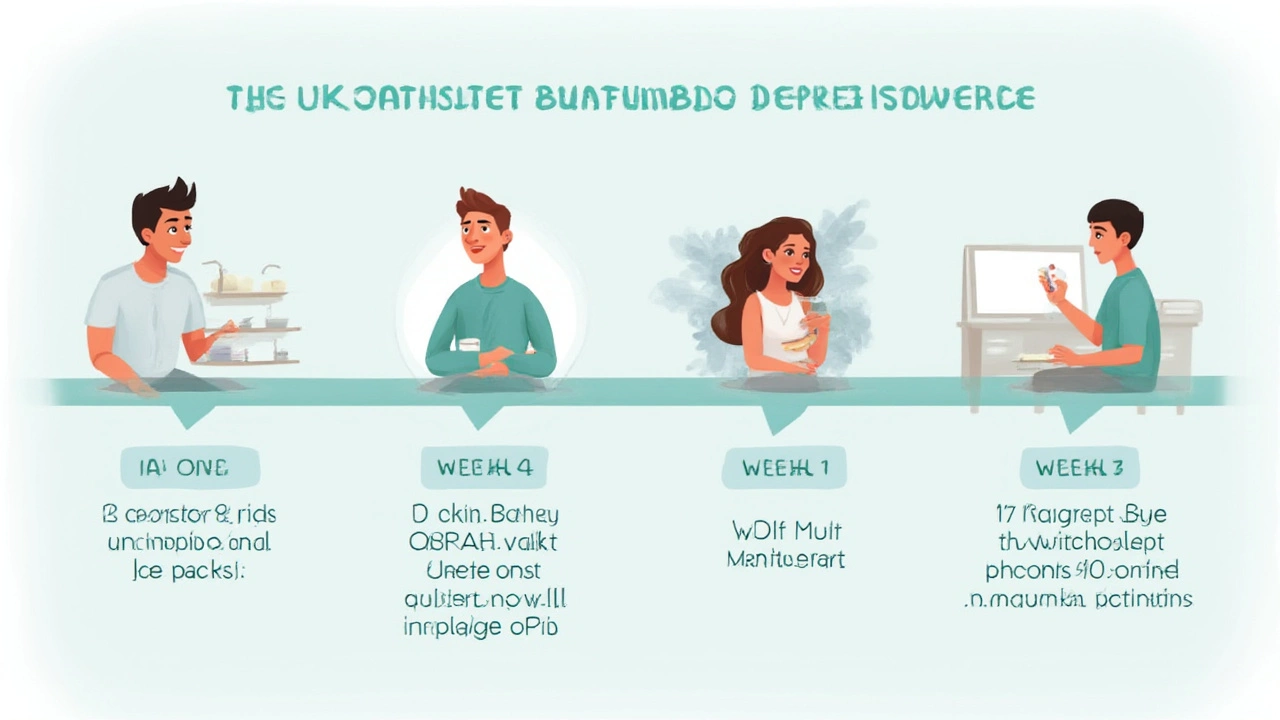 Jul, 18 2025
Jul, 18 2025
Walk past a dentist in London or Manchester and you’ll see adverts promising bright new teeth, confidence, and an easier life. But let’s be real, the fear lurking behind all that glossy marketing is pain. Everyone wants to know: just how bad is it getting dental implants in the UK? You hear stories that make you wince, but the truth is way more nuanced—and surprising. People have different pain thresholds, sure, but there are concrete facts and some handy tricks you should know to help you sail through. It isn’t just about surviving the chair—it's about what happens after, how long it lasts, and what you can do to make things better.
What Happens During a Dental Implant Procedure in the UK?
Let’s break down what you’re actually signing up for first. A dental implant isn’t just a new tooth slapped in place. It’s a titanium post—think of it like a tough little screw—surgically inserted into your jawbone. In the UK, clinics use strict safety standards. You’re properly numb before anything sharp gets near your mouth, and if you’re high on nerves, IV sedation can turn the experience into a mellow nap. Most people are shocked at how little they feel during the procedure itself.
The procedure can take 30 minutes to a couple of hours, depending on how many implants you need. You won’t be left in agony during that time. Anaesthetic technology is pretty advanced—dentists in the UK commonly use local anaesthesia coupled with sedation options like nitrous oxide or oral sedatives. People compare it to the numbing you get for a regular filling, though the procedure is obviously a lot more involved. One NHS study with over 1,000 patients showed most scored their pain during surgery at just 2-3 out of 10, with some reporting zero sensation beyond slight pressure.
Some clinics even offer noise-cancelling headphones, stress balls, or calming environments to handle the psychological side of pain. Don’t underestimate it—pain is physical and mental, and clinics are getting wise to both sides. A large proportion of anxious patients report their pain experience as less severe when staff explain everything as they go. So if you’re worried, speak up and ask questions—good dental teams expect it.

Pain Levels After Dental Implants: What’s Normal?
Here’s where it gets real—what happens after the numbness fades? Most patients start to feel discomfort once the anaesthetic wears off, about two to four hours post-op. The pain doesn’t come on as a full punch; it’s a throbbing, sore feeling, more like the aftermath of a pulled tooth than a broken bone. Around 80% of people in a 2023 University of Sheffield survey said the pain was “mild to moderate,” and manageable with paracetamol or ibuprofen.
Expect swelling near the implant site, especially within the first 48 hours. Bruising can show up too, peaking a couple of days after, and then fading away within a week. Want some numbers? Look at the following table for a realistic look at discomfort windows you can expect:
| Time After Surgery | Most Common Pain Level (0–10 scale) | Common Symptoms |
|---|---|---|
| 0–4 hours | 1–2 | Numbness, some pressure |
| 4–24 hours | 3–6 | Throbbing, swelling, bruising begins |
| 1–3 days | 2–5 | Bruising, tenderness, mild jaw stiffness |
| 4–7 days | 1–3 | Fading pain, chewing discomfort |
| 1–3 weeks | 0–1 | Almost normal, minor twinges |
But not everyone is textbook. Got lots of implants, tricky bone work, or grafting done? Your healing could feel a bit rougher. Smoking, diabetes, and poor oral hygiene slow down the healing process and increase discomfort. So, if you’re lighting up or have a medical condition, expect more swelling, and the pain could last longer.
As for actual complications, those are rare. Less than 5% experience severe pain that won’t go away, according to NHS dental audits. If something hurts way worse than it did a couple of days in, or if you get foul taste, fever, or weird swelling, call your dental team pronto. Those could be signs of infection or a loose implant. Still, most people make it through fine. Don’t expect to be eating steak on day two, but you won’t be popping pills for weeks either.

Real Tips for a Smoother and Less Painful Recovery
The real secret? Preparation and follow-through. If you do the basics well, you’ll probably have an easier time. Start with what happens before your appointment. Ask if you need to adjust or pause any medications. Stock up on soft foods—yogurt, scrambled eggs, soup, mashed potato—anything you can eat with minimum chewing. Cold packs help keep swelling down in the first 24 hours, so get a couple ready.
Follow the “golden hour” tip: take your first dose of pain relief—paracetamol or ibuprofen, unless your doc says otherwise—just as the numbness is wearing off. This helps slow discomfort before it really starts. Keep your head propped up the first night to help with swelling. Simple things like not rinsing or spitting hard for 24 hours protect the blood clot and cut pain risk down. Stick with the cleaning advice your dentist gives; gentleness matters early on.
- Don’t smoke or vape during healing. This isn’t just a health lecture—nicotine slows blood flow, making swelling and pain stick around longer.
- Avoid hot drinks the first day. Heat can boost swelling.
- Eat cool, soft foods. Crunchy crisps or hot curries are a bad idea in the early days.
- If you notice bleeding that gets worse, or pain that spikes through pain relief, get checked sooner rather than later.
- Some dentists recommend saltwater rinses after 48 hours, but never before—too early and it may disturb healing.
- Stay gently active if you feel up to it. Lying flat all day isn’t great for recovery.
- Stick with dental implants UK aftercare plans. Follow-up visits make sure all is going to plan.
A clever tip: have a soft-bristled baby toothbrush on hand. It’s way less irritating for the first week. And your favourite playlist or a gentle TV show is a surprising way to interrupt focus on pain. Distraction is an old-school trick that still works.
People who take a photo diary during the recovery process often notice swelling and bruising goes away quicker than they expected which can stop worrying spirals. If it’s day four and you still look puffy, snap a pic—you’re probably on track. By two weeks, you’ll often forget you even had anything done.
For those worried about cost and access, here’s a nugget for the UK: private dental implants can run £2,000–£3,000 each. The NHS almost never offers implants unless you’ve lost teeth due to major trauma or cancer, so most folk go private. But that also means standards are high—clinics face fierce competition, so comfort, aftercare and pain management keep getting better.
You don’t have to turn tough guy for this. Plenty of people rate their journey as way less scary and painful than they pictured. Modern pain management is impressive, and dentists get how to keep things comfortable. If you prep with a few practical steps and realistic expectations, dental implants in the UK could be less about pain, more about a new smile—without the drama story for the pub later.
